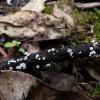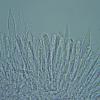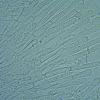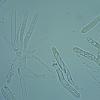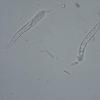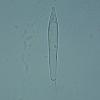
29-11-2024 21:47
Yanick BOULANGERBonjourJ'avais un deuxième échantillon moins mat

27-02-2026 17:51
 Michel Hairaud
Michel Hairaud
Bonjour, Quelqu'un peut il me donner un conseil p

27-02-2026 16:17
 Mathias Hass
Mathias Hass
Hi, Found this on Betula, rather fresh fallen twi

27-02-2026 12:56
Åge OterhalsFound on fallen cones of Pinus sylvestris in midle

27-02-2026 11:21
 Yannick Mourgues
Yannick Mourgues
Hi to all. Here is a specie that can may be relat

26-02-2026 15:00
Me mandan el material seco de Galicia, recolectada

24-02-2026 11:01
Gernot FriebesHi,found on a branch of Tilia, with conidia measur

23-02-2026 11:22
Thomas Læssøehttps://svampe.databasen.org/observations/10584971
Another Lachnum for identification
Jan Knuiman,
30-06-2018 14:36
Cup diameter: max 1 mm.
Stipe height: 0.5-1.0 mm.
Spores: 6.5-9.5 x 1.4-2.4 µm.
Paraphyses: sometimes with a swollen part and protruding the asci by 20 -25 µm. Width: 3.0-7.5 µm.
Hairs: with septa and a maximum length of 60 µm.
Crouziers: I would guess yes.
What Lachnum species could this be?
Jan
Hans-Otto Baral,
30-06-2018 14:44

Re : Another Lachnum for identification
Croziers are cleary visible on your beforelast photo. I guess again L. pubescens. L. subvirgineum has longer, more capitate hairs
Zotto
Zotto
Jan Knuiman,
30-06-2018 15:14
Re : Another Lachnum for identification
Thanks Zotto for your quick reply!
Jan
Jan
Hans-Otto Baral,
30-06-2018 16:20

Re : Another Lachnum for identification
I have a folder "pubescens cf., salicis, Salix" on my homepage which includes samples on Salix (but the type of L. pubescens was also on Salix and might be the same).
Salix and Populus are not easy to distinguish from the wood anatomy, but Betula is quite different.
Salix and Populus are not easy to distinguish from the wood anatomy, but Betula is quite different.
Hans-Otto Baral,
05-03-2025 21:16

Re : Another Lachnum for identification
Dear Jan
I would like to upload your two sequences for an article on Lachnum in Boletus. Did you receive my mail?
As for LP1 I guess the branch is about 10 mm thick, not 3 mm as I have noted.
The collection data are complete, but I need the institute where Jorinde Nuytinck works.
It should be the Naturalis Biodiversity Center in Leiden.
I think I will write her too.
Zotto
